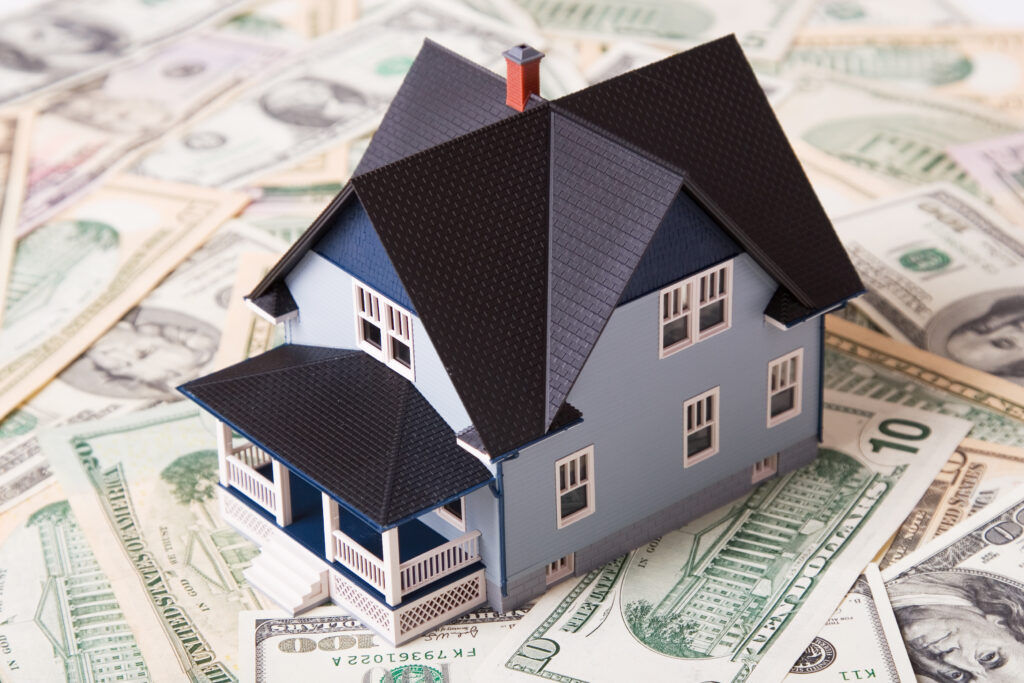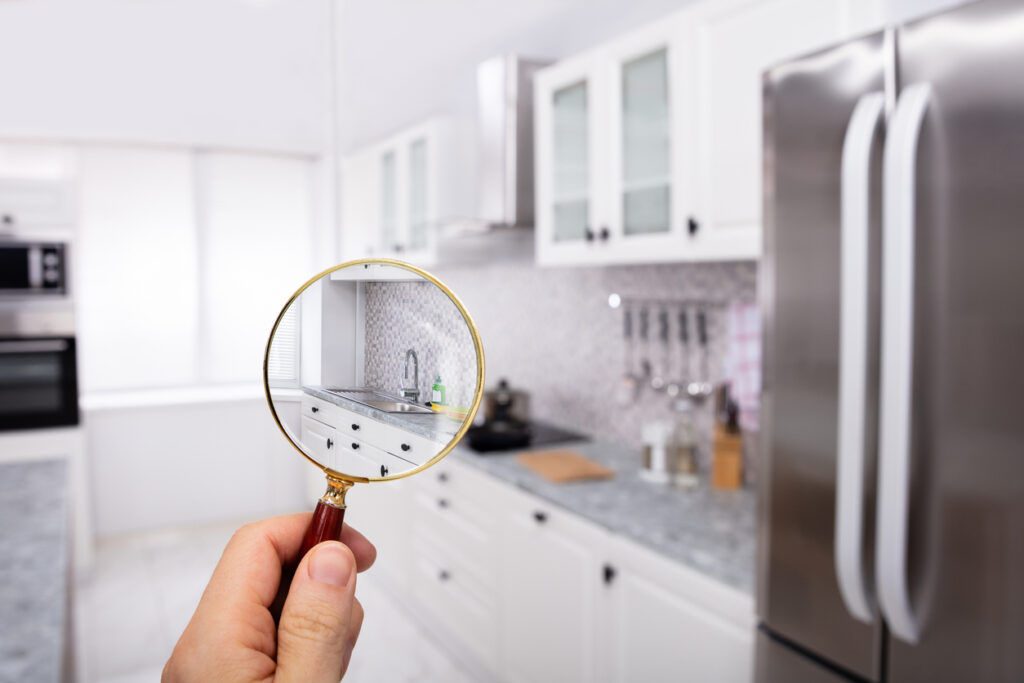Home Appraisal Timeline: What to Expect Before Closing
Click here to browse our Real Estate Agent Directory and contact top-rated agents in your area!

A home appraisal typically takes one to three weeks from the time you schedule the appointment to receiving the final report. However, the home appraisal timeline can vary depending on several factors, and delays aren’t always avoidable.
If you are a buyer or seller looking to close, it’s important to have a clear understanding of the appraisal – including its timeline. Avoiding delays can get you to the closing table sooner as you meet the needs of your mortgage lender.
This guide will answer how long an appraisal takes by breaking down each step of the process. With this information, along with a trusted real estate agent, you might be able to shave days or even weeks off the appraisal process.

The Complete Home Appraisal Timeline
Instead of viewing an appraisal as a single event, consider each step of the process and how long it takes. Here’s what you can expect from the home appraisal timeline.
Ordering and Scheduling (24-48 hours)
If your mortgage lender orders a home appraisal, they will work with an appraisal management company (AMC) to schedule a visit to your home. It takes up to 48 hours for them to assign an appraiser to your property.
However, in busy markets, this timeline can stretch to 3-5 days. This is because the AMC needs to find an available appraiser who can take on the project.
The appraiser then contacts the seller’s agent to schedule the inspection. This will fall within 2-7 days, depending on availability.
Already, you can see how the appraisal timeline can vary. In one market, an appraiser could be assigned within 24 hours and inspect the home in two days. In another market, it could take more than a week for the appraiser to visit the house.
The Home Inspection (30 minutes to 3 hours)
The physical home inspection is the quickest part. Single-family homes typically take 30-60 minutes, while larger or unique properties may require 2-3 hours. Condos often take less time (20-45 minutes) since the appraiser focuses mainly on the unit’s interior and building amenities.
The main risk with this part is that the inspector is unable to gain access to the property or needs to delay the appointment. A life emergency for the seller or inspector could push the appraisal back a few days.
Research and Analysis (2-5 days)
After the inspection, appraisers research comparable sales, analyze market trends, and verify property data. This behind-the-scenes work takes 2-5 days, depending on the property’s complexity. Rural or unique properties often require more extensive research.
The home appraiser may pull this information before they tour the home, streamlining the process. This way, they already have information like comparable sales on hand once they evaluate the condition of the home and site characteristics.
Report Writing and Submission (1-3 days)
Once they have all of the information, the appraiser compiles their findings into a report, typically 15-30 pages. These reports include photos, maps, and comparable sales to justify how they came to the appraised value.
Most appraisers submit their reports within 1-3 business days after completing their research, though some may take up to a week during busy periods.
>>MORE: How to Improve Your Credit Score

How Long Does an Appraisal Take?
Most appraisers are aware that buyers have strict timelines to meet their contingencies and close. They will work to complete the appraisal process quickly so the mortgage lender can review the information. Here’s an estimate of the appraisal timeline, depending on the type of home and report type:
- Standard timeline: 7-14 days from order to report
- Busy season timeline: 14-21 days
- Rural/complex properties: 14-28 days
- Desktop appraisals: 1-3 days (when eligible)
Unfortunately, buyers don’t have a say in when the busy season kicks in for their local real estate market or if there are limited comparables. If this is the case for your situation, try to communicate with your mortgage lender and real estate agent to confirm that the extended timeline still works with your target closing date.
Different Types of Home Appraisals
Home appraisals are changing with modern technology and real estate trends. You may have multiple options at your disposal that affect the appraisal process and timeline. Here are three options to discuss with your Realtor to see if they are right for you.
Desktop Home Appraisals (1-3 days)
These appraisals became popular during the COVID-19 pandemic when the general population was following stay-at-home orders. The home appraisal is done entirely online using public records, MLS data, and previous appraisals. No physical inspection is required.
In 2025, a typical home appraisal costs $350 on average, with larger or more complex homes costing more. Comparably, a desktop appraisal typically costs between $75 and $200.
Not only do desktop appraisals help you save money, but they can also be faster. The appraiser can start the report immediately and doesn’t need to wait for a home visit. However, not every home qualifies for a desktop appraisal. These are usually restricted to home refinances or loans with high down payments – purchases that have a lower risk than most transactions.
Ask your mortgage lender if you need to complete the full home appraisal process or if a desktop option is right for you.
Hybrid Appraisals (3-7 days)
In this option, the traditional desktop analysis is combined with third-party property data collection on the surrounding neighborhood to calculate the fair market value of the home. A local professional (not the appraiser) will take photos and measurements of the home. The appraiser will then use the digital imagery of the house to complete their report.
This process is faster than traditional appraisals because the third-party quickly collects the data, and the appraiser doesn’t have to live locally to do their job. This option is also more thorough than a desktop-only review.
This option typically costs between $150 and $300 and is increasingly accepted by lenders. It could be an alternative way to save money and speed up the appraisal process.
Automated Valuation Models (Instant)
An automated valuation model relies entirely on data to calculate the final appraised value of a property. This is a computer-generated appraisal report using publicly available data, proprietary data from the AVM software, or a combination of the two.
This is not technically a home appraisal, but some lenders accept AVMs for home equity loans or low-risk refinances. This option generates instant reports, but the results may be limited in areas where there isn’t a lot of comparable data.
Because there is less of a human element for an AVM, buyers and lenders may need to be careful when relying on the data generated for the property’s appraised value.

What Affects Your Appraisal Timeline?
Every home purchase is unique, which means it may take more or less time to receive the appraisal report for your desired property. While you can’t guarantee the appraisal will be completed within a specific timeline, you can evaluate certain factors that could slow down or speed up the process. Here’s what affects a home appraisal.
Market Conditions
In a hot market, appraisers can quickly become overwhelmed with orders, extending the time it takes to complete each report. It may take longer to find an available appraiser, to schedule an inspection, and to receive a final report. Even delays of one to two days for each step can make an appraisal take longer than a week.
Peak seasons vary from one market to the next, but spring and summer tend to be busiest for most American regions. Buyers looking in less busy months could experience faster turnaround times.
Property Type and Location
The property and its location can directly affect how long it takes to receive an appraisal report. Smaller, simpler homes in busy areas will see the fastest turnarounds. This is because there is ample data on local property values. Here is a useful guide for appraisal timelines based on home type.
- Single-family suburban homes: 7-10 days (these are the easiest to appraise)
- Condominiums: 10-14 days (these typically have HOA document requirements)
- Luxury homes: 14-21 days (there are fewer comparables for these homes, and they require a detailed analysis)
- Rural properties: 14-28 days (there are limited comparable properties, and appraisers have a larger area of coverage to review)
- Unique or historic homes: 21-30 days (specialized expertise is needed)
Appraiser Availability
Many markets face appraiser shortages, which pushes back the expected timelines. The appraisers need to work through their other properties before they reach yours.
Urban areas typically have more appraisers and faster turnarounds. Rural counties may have only 2-3 active appraisers, creating significant backlogs. In some areas, you might have to wait 3-4 weeks to get on the appraiser’s schedule.
Complexity Factors
The more complex the home appraisal, the longer the report will take. Properties with additions, unusual features, zoning issues, or condition problems may require extra research time. Some appraisers have specialized knowledge of certain property types, but others need to add extra days to the report process to do their research.
>>READ ON: The Step-By-Step Process of Buying a Home

What Happens After the Appraisal Process?
Once the home appraisal is complete, your lender will review the completed report. The results will dictate how you and the seller move forward. Three situations can arise out of an appraisal. Here’s what could happen.
Appraisal Meets or Exceeds Value (70% of cases)
In most cases, the appraisal report aligns closely with the agreed-upon purchase price, and the real estate transaction can move forward. The lender proceeds to the next step of the mortgage loan, and everyone is closer to reaching the closing table.
With the completion of the home appraisal, buyers can feel confident that they are getting a fair deal on the property.
Appraisal Comes in Low (20% of cases)
In this case, the appraisal value is significantly lower than the purchase price. Most mortgage lenders will not approve home loans for properties with low appraisals. It is too much of a risk. Fortunately, there are several options on how to move forward from here.
- The seller reduces the price of the home. They will agree to sell the house close to the report’s value.
- The buyer pays the difference. If the buyer has cash on hand, they can agree to cover the cost between the reported value and the sale price.
- Both parties meet in the middle. The seller lowers the price, and the buyer agrees to cover some of the costs.
- The buyer challenges the appraisal report. They might request additional comparables or check the data used to make sure it is accurate.
- One or both parties walk away from the deal. If an agreement cannot be reached, the sale is terminated.
It’s usually not in the best interest of sellers to cancel a deal after a low appraisal. The next offer they receive might also require an appraisal and will have the same results. Resolving this issue usually adds 3-7 days to the closing timeline. Experienced real agents for both parties are crucial for negotiation.
Appraisal Requires Repairs (10% of cases)
The buyer’s mortgage lender may request essential reports after reviewing the final appraisal report. This could mean replacing the roof, rewiring the house to make it safe, or addressing other concerns.
If the seller agrees to make these repairs, the closing timeline could be pushed back a few days (for minor repairs) or a few weeks for major ones.
The lender does not want the buyer to close on a house that needs significant repairs because the issues are a financial risk to them.
>>DISCOVER: How to Negotiate Repairs After an Inspection
How to Avoid Appraisal Delays
Sellers can’t control how long home appraisals take, but they can take steps to set their homes up for success. Here are a few ways to prepare for an appraisal as part of the real estate deal.
Before the Appraisal
Before the scheduled appraisal inspection, make sure the appraiser has access to all areas of the property. If they can’t get to part of the house, they cannot complete their full report and will have to return for a second home inspection.
Complete any obvious repairs that could either hurt the appraisal or cause delays from lender requests. This process could take a few weeks and should be completed before you list the property.
Document the repairs and improvements you make, while also pulling records of past upgrades. Add the costs to these projects to your documentation.
Gather any HOA documents if applicable and declutter the home. This won’t affect the appraisal but can showcase the square footage of the property.
During the Home Appraisal Process
Respond quickly to appraiser requests. The longer the appraiser takes to get all the necessary information, the longer it will be before the report is finalized. Try to provide any additional documentation within 24 hours of receiving the request.
As a seller, don’t contact the appraiser directly. Go through your agent to ensure proper documentation and communication protocols are followed.
Working with Your Agent
Make sure you hire a real estate agent with strong local appraiser relationships. They will be able to work with the appraiser to ensure the report is accurate and completed in a timely manner. As a seller, make sure you provide as much property data as you can. Anything is helpful when completing a home appraisal.

Find a Realtor to Navigate the Appraisal Process
Bumps in the road are a natural part of buying or selling a house. One way to increase your chances of overcoming these hurdles is to hire an experienced agent who will stand by you every step of the way. A trusted professional can communicate clearly and respond quickly to your needs.
“A Realtor guides home sellers through the entire process, from listing to closing, while advocating for their best interests,” says Amanda Lucido Hodges at Lucido Real Estate in Bourne, Massachusetts. “With expert pricing, negotiation skills, and local knowledge, they help sellers achieve a smooth and profitable sale.”
To find a Realtor near you, turn to FastExpert. You can read agent profiles, interview candidates, and find the best one. Try FastExpert today and start the real estate process with someone you can trust.





